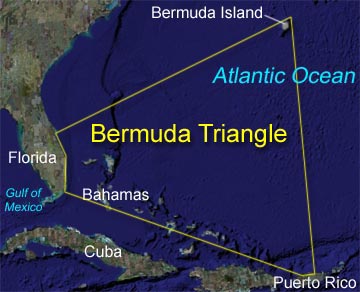
Lawrence David Kusche, a research librarian from Arizona State University and author of The Bermuda Triangle Mystery: Solved (1975) has challenged this trend. Kusche's research revealed a number of inaccuracies and inconsistencies between Berlitz's accounts and statements from eyewitnesses, participants, and others involved in the initial incidents. He noted cases where pertinent information went unreported, such as the disappearance of round-the-world yachtsman Donald Crowhurst, which Berlitz had presented as a mystery, despite clear evidence to the contrary. Another example was the ore-carrier recounted by Berlitz as lost without trace three days out of an Atlantic port when it had been lost three days out of a port with the same name in the Pacific Ocean. Kusche also argued that a large percentage of the incidents which have sparked the Triangle's mysterious influence actually occurred well outside it. Often his research was simple: he would go over period newspapers of the dates of reported incidents and find reports on possibly relevant events like unusual weather, that were never mentioned in the disappearance stories.
Kusche concluded that:
- The number of ships and aircraft reported missing in the area was not significantly greater, proportionally speaking, than in any other part of the ocean.
- In an area frequented by tropical storms, the number of disappearances that did occur were, for the most part, neither disproportionate, unlikely, nor mysterious; furthermore, Berlitz and other writers would often fail to mention such storms.
- The numbers themselves had been exaggerated by sloppy research. A boat listed as missing would be reported, but its eventual (if belated) return to port may not have been reported.
- Some disappearances had in fact, never happened. One plane crash was said to have taken place in 1937 off Daytona Beach, Florida, in front of hundreds of witnesses; a check of the local papers revealed nothing.
- The Legend of the Bermuda Triangle is a manufactured mystery... perpetuated by writers who either purposely or unknowingly made use of misconceptions, faulty reasoning, and sensationalism.



No comments:
Post a Comment